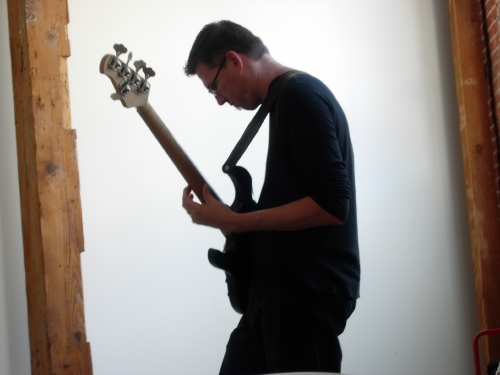
I was fortunate enough to study with the great bassist
Dave Carpenter (Allan Holdsworth, Buddy Rich, Woody Herman, Boz Skaggs, Peter Erskine) for about a year-and-a-half while I was attending
CalArts and I learned a lot from him about music and professionalism. I remember that he had some great, simple advice about the requirements for taking a gig.
Dave's simple criteria is as follows:
- Who's it with?-You don't want to turn down a gig to play with a big name or a local guy that will take your career to the next level and provide you with real opportunity.
- Where's it at?-You want to make sure you can physically get to the gig and you need to know if the gig is down the street or possibly in another state or country.
- How much? You want to know what you will be compensated for your time and skills.
This was the order. Notice that money was last. Dave's reasoning was this. If you are offered a gig with
Wayne Shorter at a club 5 miles away, but it only paid $50 bucks, you take it. The exposure alone was worth the little money and you get to play with Wayne!
If you are offered a casual gig with a top forty group in 120 miles away, but it pays $300, you take it. Money compensates you for the 7 or more hours of time to do your job.
If
Murph and the Magic Tones calls you for a gig at the Holiday Inn, 90 miles away for $25, you can respectfully decline (unless you are really hard up!)
The thing I really liked about this is that it really puts the music and your experience first. If the above scenarios all were offered on the same evening, the Wayne Shorter gig for $50 is still probably the gig to take because simply, the exposure would most likely pay you back ten-fold to the higher paying casual and it takes less of your time. As well, it still gives you time to schedule other gigs or lessons with students before the evenings performance.







